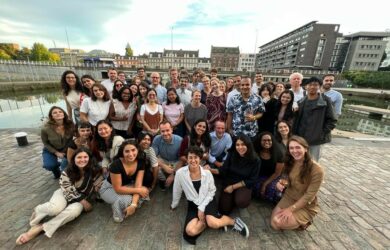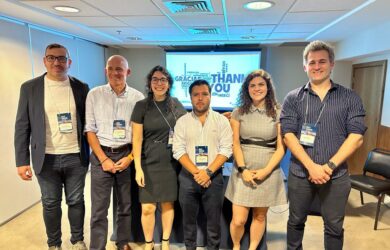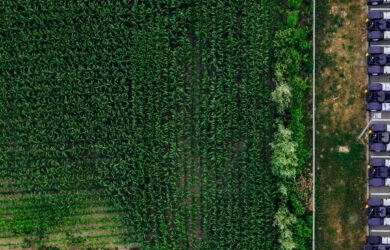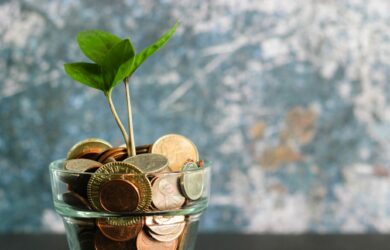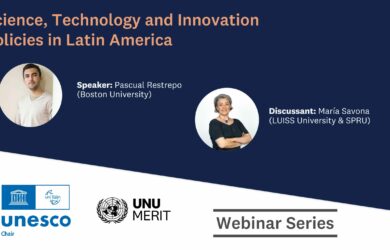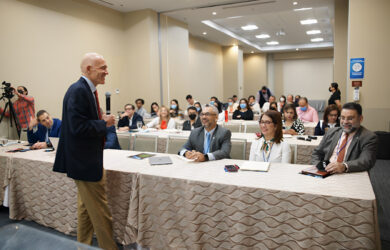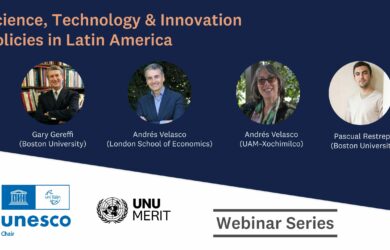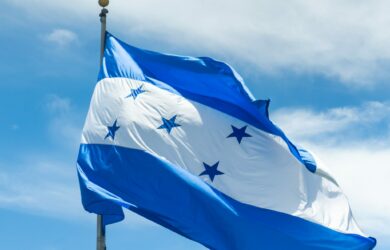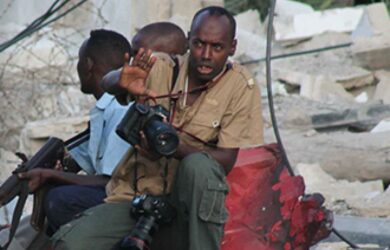- ABOUT US
- RESEARCH
- EDUCATION
- The Graduate School
- PhD Programme
- MSc Programmes
- Capacity Development
- News
- Design and Evaluation of Public Policies (DEPP)
- Design and Evaluation of Innovation Policies (DEIP)
- Evidence-Based Policy Research Methods (EPRM)
- Migration Management Diploma Programme (MMDP)
- Moving the Migration Policy Agenda Forward (MMPAF)
- Online Courses
- Short Courses (Masters)
- Tailor-made programmes
- UNU-MERIT, ITU Academy Training Centre
- Alumni
- Academic Funding
- NEWS
- EVENTS
- PUBLICATIONS
- LIBRARY
5 ways we made a difference in 2023
10 January 2024
When it comes to summarizing all that an institute as diverse as UNU-MERIT achieves in a year, where does one begin? Our work spans education programmes and capacity development efforts to media engagement and thought leadership to research projects big and small, and so much more. Nevertheless, we’ve done our best to give a snapshot of UNU-MERIT’s impact in 2023 through these five key contributions to sustainable development: Responded to the climate crisis Few parts of life fail t...
Continue Reading →Here’s what happened at the SASE 2023 conference
09 August 2023
Lessons from the three-day event in Rio de Janeiro By Mercedes Menéndez, Carlo Pietrobelli and Jorge Valverde From 20 to 22 July 2023, the Society for the Advancement of Socio-Economics (SASE) met for a three-day conference in Rio de Janeiro. There, the UNU-MERIT UNESCO Chair on Science, Technology and Innovation for Sustainable Development in Latin America organized a panel focused on the potential effects of the new techno-economic paradigm for Latin-American countries, entitled “The dual tran...
Continue Reading →Global value chains: An expert’s thoughts on their development strategies
06 June 2023
Six questions with UNESCO Chair speaker and Duke University professor Gary Gereffi Few understand global value and supply chains – let alone the differences between them – more deeply than Gary Gereffi, a Duke University professor who has been studying our global production frameworks in all their labyrinthian growth and development for some five decades. In a recent event hosted by UNU-MERIT’s UNESCO Chair, Gereffi shared his timely insights on what recent industrial policy changes ...
Continue Reading →What are the macroeconomic challenges of the green transition in emerging nations?
17 May 2023
UNU-MERIT UNESCO Chair event examines investment strategies for climate and development goals When it comes to limiting global warming to 1.5 degrees Celsius, who will finance the investments needed to do so, and will the funding sources be domestic or foreign, public or private, or from debts or grants? And, in a macroeconomic context, how can we ensure that such investments will have their desired effects on the green transitions of nations? These are the questions Andrés Velasco, Dean of the ...
Continue Reading →Automation technologies: A challenge or opportunity for development in Latin America?
17 March 2023
In the second webinar of the UNESCO Chair series on ‘Science, Technology and Innovation Policies for Sustainable Development in Latin America’, Dr. Pascual Restrepo (Assistant Professor of Economics at Boston University) gave a presentation on the ‘Origins and implications of the current wave of automation technologies’. Dr. Maria Savona, Professor of Economics of Innovation at SPRU & Professor of Applied Economics at LUISS University, acted as a discussant. The semin...
Continue Reading →Training Programme on Productive Development and Competitiveness in Honduras
30 January 2023
In October 2022, UNU-MERIT’s UNESCO Chair on Science, Technology and Innovation for Sustainable Development for Latin America and the Inter-American Development Bank (IADB) delivered a Training Programme on Productive Development and Competitiveness in Honduras. The training programme was oriented toward Honduras’s senior policymakers at national and sub-national levels, scholars, union representatives and the private sector, who lead and work on agendas to enhance competitiveness, ...
Continue Reading →Should STI policies in Latin America give priority to social inclusion?
15 December 2022
During the first webinar of the UNESCO Chair series on ”Science, Technology and Innovation Policies for Sustainable Development in Latin America”, Prof. Gabriela Dutrénit (Universidad Autónoma Metropolitana-Xochimilco, México) gave a presentation on “STI Policy, development strategy and social inclusion”. Gonzalo Rivas, Chief of the Competitiveness, Technology and Innovation Division of the Interamerican Development Bank (IADB), acted as discussant. The seminar was held ...
Continue Reading →Addressing the main challenges on Science, Technology & Innovation Policies for Latin America
28 November 2022
As part of UNU-MERIT’s UNESCO Chair on Science, Technology and Innovation Policies for Sustainable Development for Latin America, we proudly announce our series of webinars on Science, Technology and Innovation Policies for Sustainable Development in Latin America. The meetings will be framed around four main challenges for STI policies in the region. These topics crucially depend on the intrinsic characteristics of the region, as well as on global trends in the changing techno-economic pa...
Continue Reading →UNU-MERIT’s UNESCO Chair to Deliver Training for Policymakers in Honduras
04 October 2022
This training program will take place in a hybrid format, including a series of webinars and a face-to-face course in Tegucigalpa between the 24th and 26th of October. The training program is oriented toward Honduras’s high-level decision-makers, including policymakers at the national and sub-national levels, experts, scholars, representatives of unions and the private sector, who are leading and working on agendas to enhance competitiveness, productive development and job creation. The ge...
Continue Reading →International Day to End Impunity for Crimes against Journalists: Exploring another dark side of innovation
02 November 2021
The 2021 International Day to End Impunity for Crimes against Journalists highlights the instrumental role of prosecutorial services, in investigating and prosecuting not only killings but also threats of violence against journalists. This year’s campaign highlights the psychological trauma experienced by journalists, and stresses the need to investigate and prosecute anyone making such threats. To mark this year’s event, which coincided with the Nobel Peace Prize being awarded to two inve...
Continue Reading →12
Archives
Contact
UNU-MERIT
Boschstraat 24
6211 AX Maastricht
The Netherlands
T: +31 43 388 44 00
Email: info@merit.unu.edu
Boschstraat 24
6211 AX Maastricht
The Netherlands
T: +31 43 388 44 00
Email: info@merit.unu.edu
Partner sites
Newsletters
© 2024 UNU-MERIT | Maastricht University


